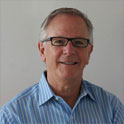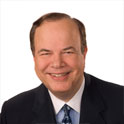


By Jim Rush, Ph.D., Kerry Bunker, Ph.D., and Art Gechman, Ph.D.
Today, while little remains certain, acknowledged and self-proclaimed experts, business leaders, and even the average Joe and Jane agree―the world is far less predictable. As someone whose work focuses on measuring the financial impact of risk and uncertainty, actuaries know how important it is to handle tomorrow as well as today. So, if your world is more volatile, uncertain, complex and ambiguous (VUCA), what are you doing about it?
When we ask that question to leaders and business owners, the initial response is usually about efforts to better manage time, prioritize more effectively, and improve the classic lifestyle issues. When we follow up, people mention the need to improve a leadership skill―talking less, listening more and drawing others out are all popular. When we ask “what else,” leaders get more candid, talking about how the challenges facing them have changed and become tougher. There is a sense of frustration about applying what has worked in the past and getting a less satisfactory result. They are relying on familiar approaches yet struggling.
We always feel the leader is reaching for what acclaimed organizational psychologist Chris Argyris calls single loop. They see the need for an incremental improvement, or a way to make the existing function somewhat better. Whereas a double loop approach suggests we re-examine our assumptions, reframe the challenge and take nothing for granted.
If we do this, we recognize that many of our tougher challenges (and opportunities) require a double loop approach. Just as in risk management, our toughest business challenges are ones we have not previously seen. Leveraging our lead strengths and tried-and-true approaches may not work. For this, we need to be more adaptable and get comfortable performing and learning, even outside our comfort zone.
So how do we make this happen and what are you doing about it?
It isn’t easy. Leadership development research has long pointed to experience as the key source of most potent learning. It has also highlighted the dominant role that leveraged experience plays in differentiating those who progress from those who plateau. With all the understanding about the importance of experience as teacher, don’t fall into the trap of simply developing competencies. As an independent business it is even more important that you focus on creating adaptability, nurturing the ability to learn, building resiliency and developing competence.
Learning involves both going against the grain of what has made us successful in the past, and a predictable decrement in short-term performance. Combine this uneasiness with the rapid pace of our world and the pressure-filled demand for constant performance and it is easy to see that organizations everywhere are set up to keep doing what we already know how to do. In this, we fail to recognize when our established routines and patterns are not well suited for tackling the complexity and ambiguity of the VUCA world.
To get unstuck we have to:
- Build awareness of habitual patterns of behavior and learning (what you do).
- Realize the source of those patterns (why you do it).
- Test the appropriateness of the underlying assumptions, beliefs and biases driving behavior in the current environment (how you need to change).
Once we understand the habits that are impacting our performance, we are ready to increase learning from experience. We admit areas of stuckness, create openness to new experiences and perspectives, and acknowledge we don’t have the answers to core challenges we have not previously faced.
How Do We Start?
Take this brief self-assessment to get a sense of whether you and your business are keeping up with our changing world. Be candid, but take the time to think deeply about the issues raised. These questions are meant to provoke your thinking and help you assess how you deal with first-time conditions.
First, think about challenges you face that are not typical. This requires you to reframe and see what is coming around the corner.
- How frequently do you confront novel situations for which the manual has not yet been written?
- When faced with new challenges, how often do you use what has worked for you in the past?
- When you try to step outside your comfort zone, what holds you back and how do you overcome it?
Second, think about what you are doing differently, if anything, in leading through these adaptive challenges.
- As you go through your day, how effective are you at picking up subtle differences in context, leading and observing at the same time, noticing new opportunities and threats, and cultivating fresh perspectives?
- When facing a new challenge, how often do you re-evaluate your assumptions and assess whether these are still valid?
- How often are you likely to suspend judgment and force yourself not to jump to conclusions?
- How frequently do you use deliberate reflection, visualization, self-talk and meditation in mentally preparing for challenges?
- When you are working on a challenge you have not previously encountered, how frequently are you ready with a storehouse of ready, fresh responses that are outside your typical tried-and-true approaches?
- What are your experience gaps? What are the one to two you are actively working on? How will you close them?
- When beginning a new assignment, how likely are you to outline your performance and learning goals?
- What approaches do you use to tolerate uncertainty and ambiguity?
- How often do you journal about your performance and learning challenges in an effort to better understand what is holding you back?
As you reflect on these questions, are you seeing yourself as a natural learner or a leader who has implemented a deliberate, disciplined and systematic process to extract learning from your experiences? If so, the world has changed and you are in sync. If not, isn’t it time to make experience really matter?
Jim Rush, Ph.D., Kerry Bunker, Ph.D., and Art Gechman, Ph.D. are founders of MEM Partners, a consulting firm that develops leaders to handle volatile, uncertain, complex and ambiguous environments by helping leaders and their organizations learn to further leverage experience. Visit them at www.mempartners.com.